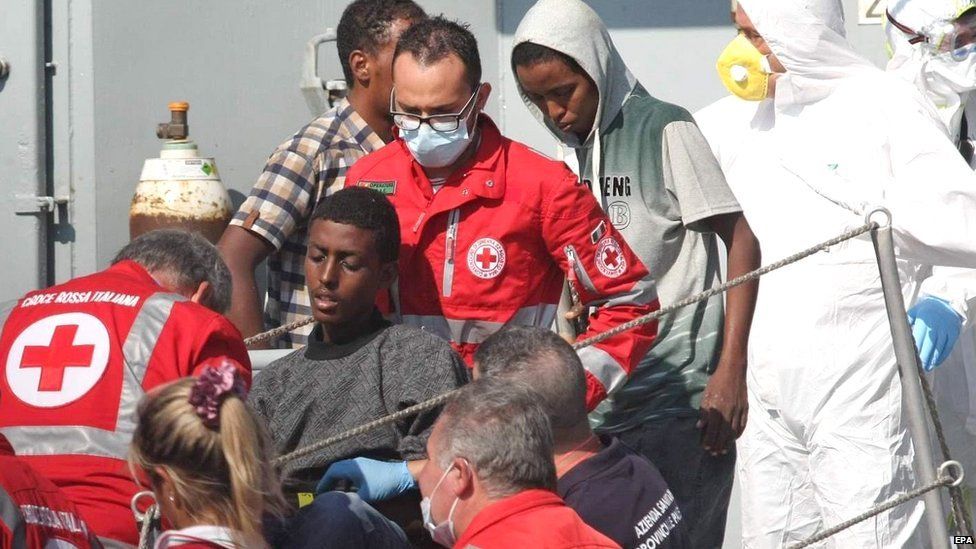-
6 August 2015
- From the section Europe

Hundreds of migrants rescued from a boat that sank off Libya with 600 people on board have arrived on the Italian island of Sicily.
Members of the International Red Cross met them at the quayside with water and medical supplies. The survivors will be transferred to centres around Italy.
It is unclear how many people are missing from Wednesday’s disaster. Twenty-five bodies have been recovered,
Rescue vessels are continuing to search the area where the boat sank.
The boat capsized when those on board spotted an Irish naval ship and rushed to one side.
A spokesman for the Irish navy said the fishing boat was grossly overcrowded. A number of Syrians were among those rescued.
Officials initially feared hundreds had drowned, but the UN refugee agency (UNHCR) said 400 people were rescued.
Why is EU struggling with migrants and asylum?
Migration: Are more people on the move than ever before?
More than 2,100 migrants are said to have died in 2015 so far trying to cross the Mediterranean to reach Europe.
And on Thursday the UN said some 224,000 migrants and refugees had crossed the Mediterranean to Europe so far this year – an increase from a total of 219,000 making the journey for the whole of 2014.
“By the end of July, some 224,000 refugees and migrants had arrived by sea in Europe, including 98,000 in Italy and 124,000 in Greece,” a UNHCR spokesman said.
The European Commission has been urging EU states to share the burden of processing asylum claims.
In a statement on Thursday, it said: “It is easy to cry in front of your TV set when witnessing these tragedies. It is harder to stand up and take responsibility. What we need now is the collective courage to follow through with concrete action on words that will otherwise ring empty.”
The Mediterranean Sea is the world’s most deadly border area for migrants.
In April, a fishing boat carrying about 800 migrants sank off the coast of Libya in what the UN called the deadliest incident in the Mediterranean ever recorded.
EU leaders agreed to increase spending on its search-and-rescue operation in the region after that incident, but smugglers continue to send desperate migrants on the dangerous journey.


